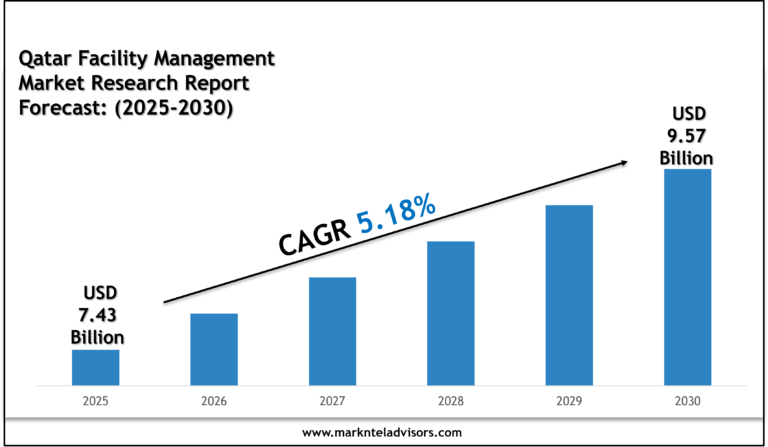In the rapidly evolving blockchain ecosystem, startups are increasingly leveraging smart contracts to automate operations, enforce agreements, and power decentralized applications (dApps). While smart contracts offer tremendous advantages in terms of efficiency, transparency, and decentralization, they also introduce significant security and compliance risks. Vulnerabilities in smart contracts can lead to financial losses, regulatory penalties, and irreparable damage to a project’s reputation. To mitigate these risks, startups are turning to professional smart contract audits, a critical step in ensuring both security and compliance.
Understanding Smart Contract Audits
A smart contract audit is a thorough review and analysis of a blockchain-based contract’s code to identify vulnerabilities, logical errors, or compliance issues. Unlike traditional software, smart contracts are immutable once deployed on a blockchain, meaning any flaw can have irreversible consequences. Audits combine manual code review, automated testing, and scenario-based simulations to detect potential weaknesses and recommend corrective measures.
Professional auditors assess both the technical integrity and regulatory compliance of smart contracts. This includes verifying that the contract executes intended functions correctly, adheres to best practices for security, and aligns with applicable legal standards. A successful audit not only reduces the risk of hacks but also enhances investor confidence, signaling that the startup takes security and governance seriously.
Key Reasons Startups Require Smart Contract Audits
-
Preventing Financial Losses and Hacks
Smart contracts often handle substantial sums of cryptocurrency or digital assets. Any vulnerability, such as reentrancy attacks, integer overflows, or logic flaws, can be exploited by malicious actors. High-profile incidents like the DAO hack, which resulted in millions of dollars in losses, highlight the catastrophic impact of poorly audited smart contracts. Professional audits identify and rectify these vulnerabilities before deployment, safeguarding both the project and its users. -
Ensuring Regulatory Compliance
As blockchain adoption grows, regulators worldwide are increasingly scrutinizing smart contract-based platforms, particularly those involving token sales, DeFi protocols, or financial applications. Audits help ensure that contracts comply with relevant laws, such as Anti-Money Laundering (AML), Know Your Customer (KYC), and securities regulations. Compliance reduces legal risks, prevents penalties, and strengthens trust with institutional investors. -
Building Investor and Community Trust
Investors, users, and partners are more likely to engage with projects that demonstrate transparency and a commitment to security. Publishing a professional audit report signals that the startup has proactively addressed potential risks, fostering confidence and credibility. This can be a differentiator in a competitive blockchain landscape, attracting capital, strategic partnerships, and early adopters. -
Optimizing Code Quality and Performance
Beyond security, audits improve the overall quality of the smart contract code. Auditors identify inefficient logic, redundant functions, and scalability concerns, which can enhance contract performance and reduce gas fees. Optimized, clean code ensures smoother execution and long-term maintainability, which is crucial for projects that anticipate growth or feature updates.
The Smart Contract Audit Process
-
Pre-Audit Preparation
Before engaging auditors, startups must ensure the contract is complete and functional. This includes documenting the intended functionality, outlining use cases, and providing any relevant technical specifications. Clear documentation helps auditors understand the project’s goals and assess the contract against its intended behavior. -
Automated Testing and Analysis
Auditors employ automated tools to scan the contract for common vulnerabilities and coding errors. Static and dynamic analysis tools detect issues such as reentrancy, arithmetic overflows, uninitialized variables, and access control weaknesses. Automated tests provide an initial layer of security verification and can handle complex scenarios that manual review might overlook. -
Manual Code Review
While automated tools are valuable, manual review by experienced auditors is crucial for uncovering subtle logic flaws, economic exploits, or protocol-specific risks. Auditors thoroughly examine each function, cross-check code dependencies, and simulate potential attack vectors. Manual review also ensures that the contract’s behavior aligns with the startup’s intended use case. -
Security and Compliance Assessment
Auditors evaluate whether the smart contract adheres to industry best practices and relevant regulatory requirements. For tokenized projects, this may include assessing token distribution rules, vesting schedules, KYC/AML integrations, and mechanisms that prevent illegal activity. This dual focus on security and compliance ensures that the contract is safe to deploy and legally sound. -
Reporting and Recommendations
After the review, auditors provide a detailed report outlining identified vulnerabilities, potential risks, and actionable recommendations. The report may categorize issues by severity—critical, high, medium, or low—and offer guidance on remediation. Startups can use this report to fix vulnerabilities, enhance functionality, and prepare for final deployment. -
Re-Audit and Verification
Once the startup addresses the recommended changes, auditors may perform a re-audit to verify that all issues have been resolved. This step ensures the contract meets security standards and regulatory expectations, providing a final layer of assurance before going live.
Benefits of Engaging Professional Smart Contract Auditors
-
Expertise and Industry Experience
Professional auditors bring specialized knowledge in blockchain technology, cryptography, and security protocols. Their experience with past vulnerabilities and exploits enables them to identify issues that in-house developers might overlook. -
Comprehensive Risk Mitigation
Auditors assess technical, economic, and compliance risks. This holistic approach ensures that startups are protected not just from hacking attempts but also from regulatory scrutiny or logic flaws that could compromise the project’s success. -
Enhanced Market Reputation
A professionally audited smart contract is a signal of quality, professionalism, and reliability. Startups that publicly share audit reports demonstrate transparency, attracting investors, partners, and users. It can also improve media coverage and community support, which are crucial for early-stage projects. -
Long-Term Sustainability
Audits contribute to sustainable project growth by ensuring the codebase is secure, optimized, and adaptable to future updates. Projects built on robust, audited contracts are more likely to survive market volatility and evolving regulatory environments.
Common Challenges in Smart Contract Audits
Despite their benefits, smart contract audits come with challenges:
-
Cost Considerations
Comprehensive audits can be expensive, particularly for complex projects. However, the cost is often justified by the mitigation of potential financial and reputational losses. Startups should view audits as an investment in long-term security and credibility. -
Time Constraints
Thorough audits require time for automated testing, manual review, reporting, and re-auditing. Rushing the process can result in missed vulnerabilities, undermining the audit’s effectiveness. Proper planning and scheduling are essential. -
Evolving Threat Landscape
Blockchain security threats evolve continuously. Audits capture vulnerabilities at a specific point in time, but ongoing monitoring, updates, and maintenance are necessary to address emerging risks. -
Integration Complexity
Smart contracts often interact with other contracts, dApps, or external oracles. Ensuring security across integrated systems requires additional effort and coordination during the audit process.
Conclusion
For startups leveraging blockchain technology, professional smart contract audits are indispensable for ensuring security, compliance, and investor confidence. By thoroughly examining code, identifying vulnerabilities, and validating regulatory adherence, audits help mitigate financial, technical, and legal risks. Beyond protection, audits enhance code quality, optimize performance, and signal transparency, which is crucial for attracting investors and building a strong market reputation.
In an industry where trust is paramount, startups that prioritize professional audits position themselves for sustainable growth, long-term credibility, and resilience against emerging threats. Smart contract audits are not merely a technical formality—they are a strategic investment in a project’s security, legality, and overall success.





